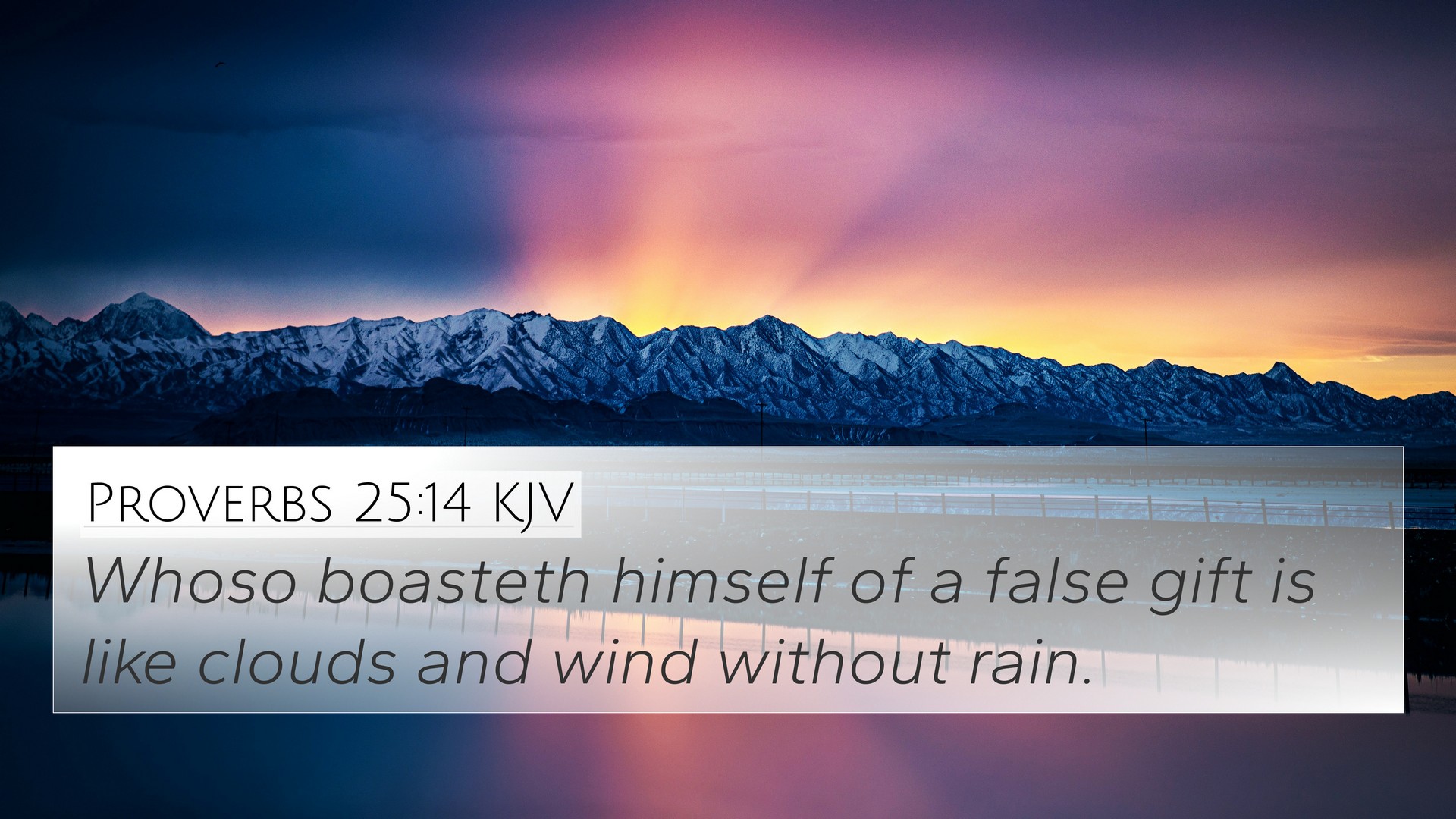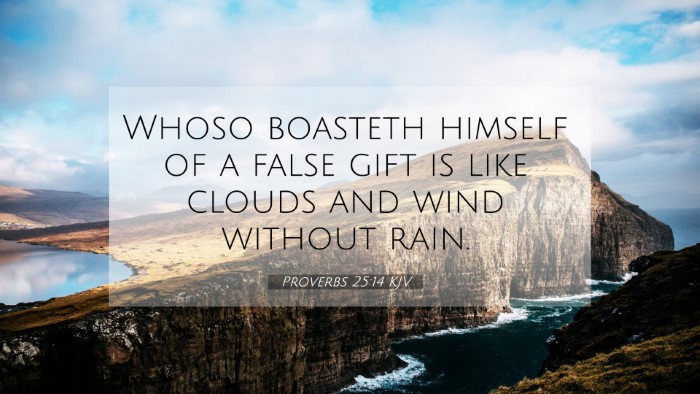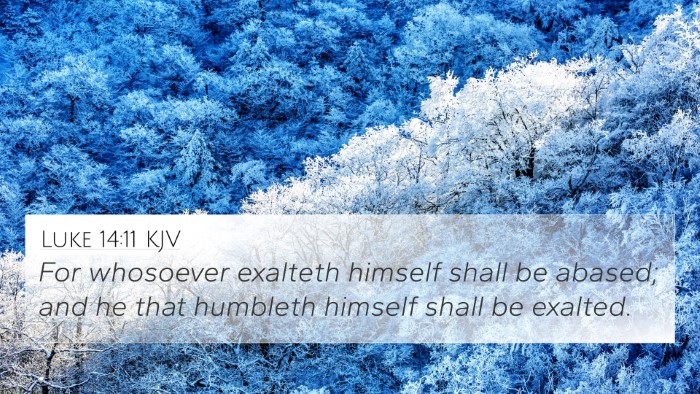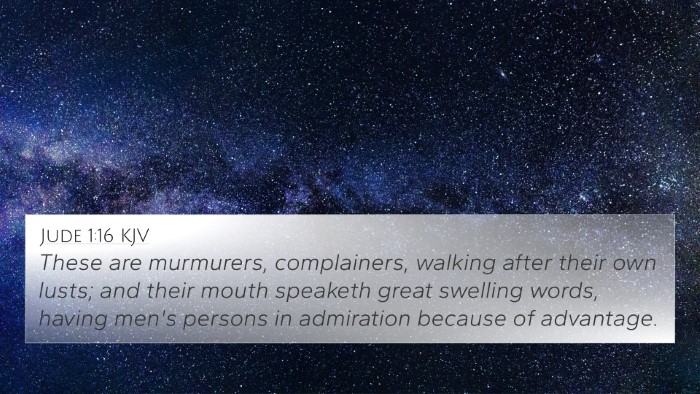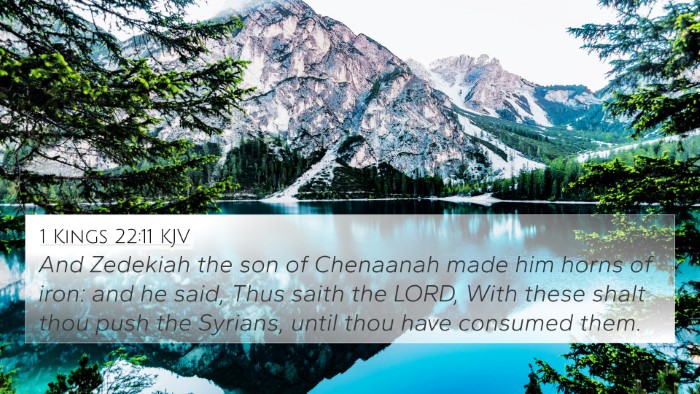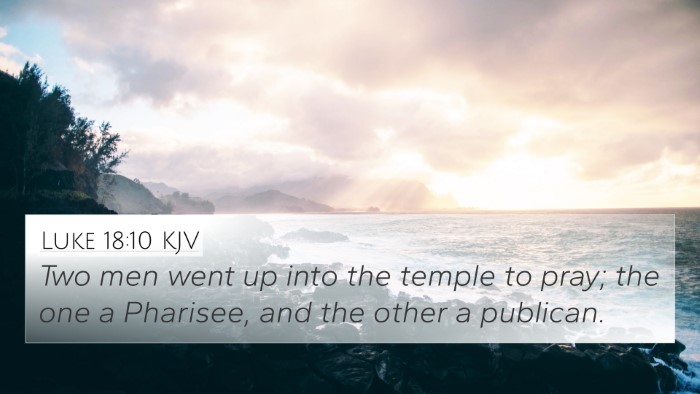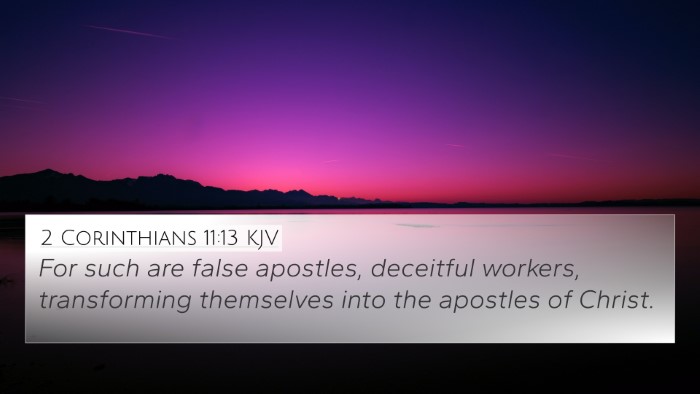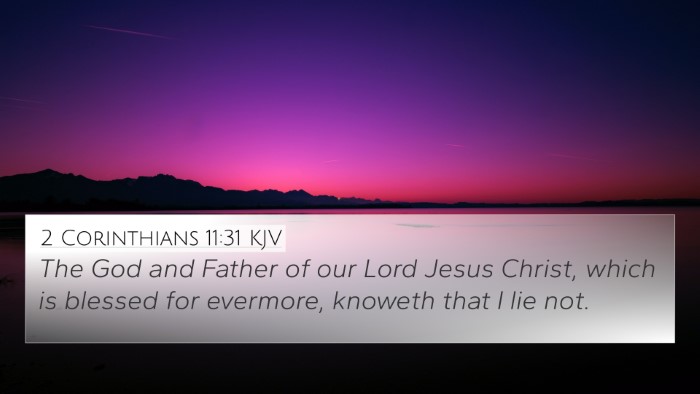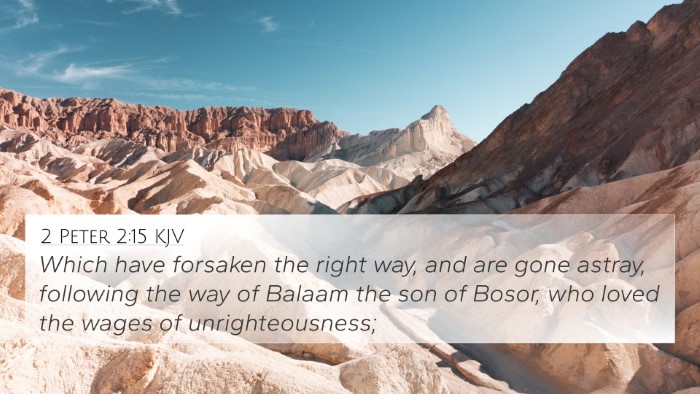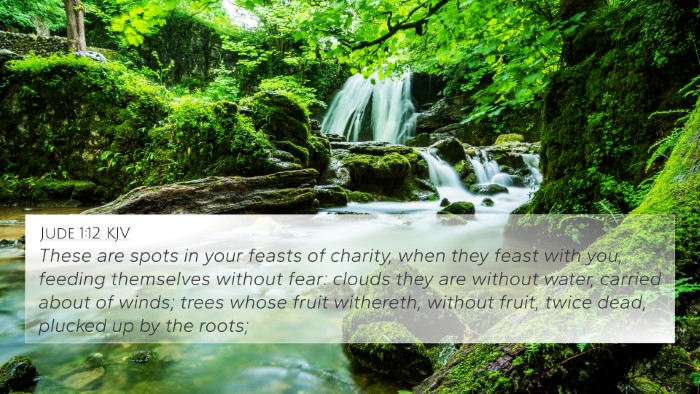Understanding Proverbs 25:14
Proverbs 25:14 states: "Whoso boasteth himself of a false gift is like clouds and wind without rain." This verse provides a profound lesson on the nature of falsehood and empty promises. The wisdom literature often emphasizes the importance of integrity and the consequences of deceit.
Summary of Meaning
This verse highlights the emptiness of boasting about false gifts, comparing such falsehoods to clouds that promise rain but deliver none. It serves as a metaphor to illustrate that just as rain is necessary for growth, true gifts and promises must also bear fruit.
Insights from Public Domain Commentaries
- Matthew Henry: Henry's commentary emphasizes that boasting of what cannot be delivered is not only foolish but ultimately leads to disappointment. He notes that such actions can bring about disdain from others and can harm one's reputation.
- Albert Barnes: Barnes' interpretation focuses on the futility of false gifts. He likens the act of boasting about spiritual or material gifts that are not genuine to the deceptive promises of unproductive clouds, which give a hope that is unfulfilled.
- Adam Clarke: Clarke highlights that the verse serves to remind us of the value of humility. He suggests that every believer should strive to speak the truth and uphold their commitments, avoiding the temptation to boast about what they do not possess.
Cross-References
Proverbs 25:14 has notable cross-references that deepen our understanding:
- James 3:14-16: This passage warns against the conflict and disorder that arise from false wisdom.
- Proverbs 11:1: This verse emphasizes the importance of honesty in weights and measures, paralleling the theme of integrity.
- Proverbs 12:22: "Lying lips are abomination to the Lord: but they that deal truly are his delight." Here, honesty is presented as a desirable trait.
- Proverbs 26:19: This reinforces the theme of deceit and falsehood, highlighting its foolishness.
- Galatians 6:7: "Be not deceived; God is not mocked: for whatsoever a man soweth, that shall he also reap." This can be seen as a warning about the consequences of deceit.
- Matthew 7:16-20: "Ye shall know them by their fruits." This emphasizes that genuine gifts are recognized by their results, echoing the imagery of clouds without rain.
- 2 Corinthians 5:10: This speaks to the future judgment where authentic deeds will be weighed, reinforcing the importance of truthful actions.
Applications for Study
Understanding the connection of Proverbs 25:14 with other scriptures allows deeper insights into the themes of integrity and truthfulness in the Bible.
- Tools for Bible Cross-Referencing: Utilize tools like a Bible concordance or cross-reference guide to explore similar themes across scripture.
- Bible Reference Resources: Create a comprehensive study plan that includes various books and topics, focusing on themes of honesty and truth.
- Cross-Referencing Bible Study Methods: Engage with cross-referencing to discover thematic threads woven throughout the Scriptures.
- Long-Tail Keyword Study: For deeper analysis, consider exploring how the teachings in Proverbs connect with the teachings in the New Testament.
Conclusion
Proverbs 25:14 serves as a crucial reminder to uphold truthfulness, avoid empty boasts, and recognize the impact our words and actions have. This verse’s message resonates through multiple layers of scripture and encourages reflective study and sincere practice in everyday life.
